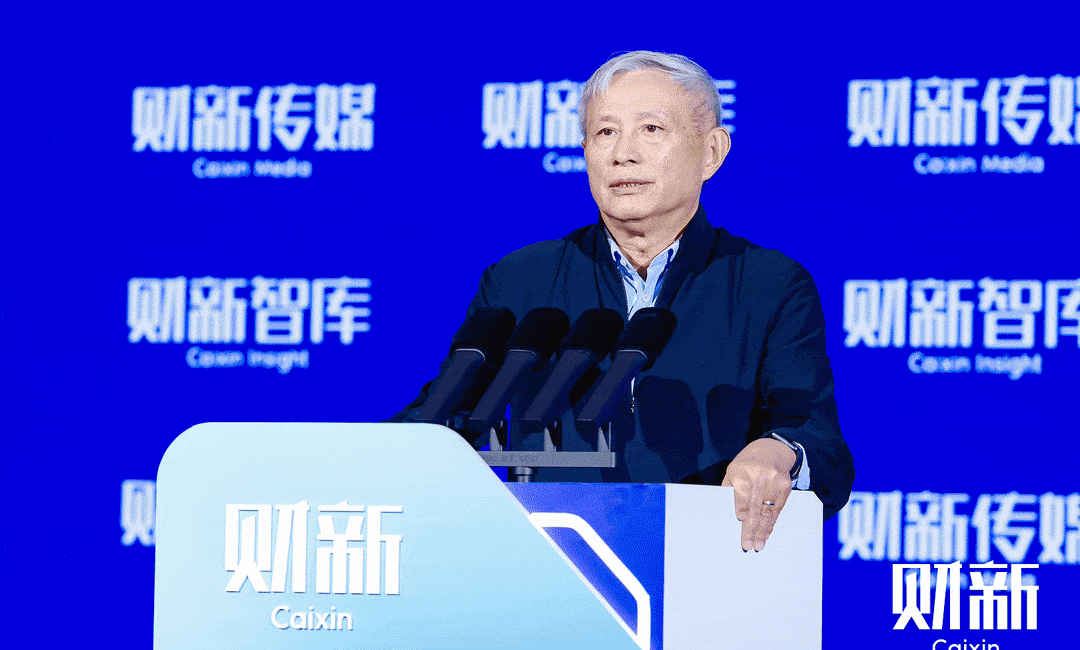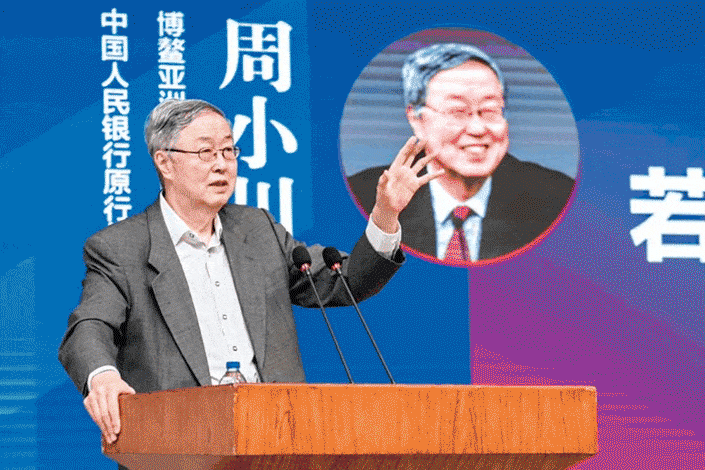Paid Version👑
Premium content of China’s economy, finance and business news in real time.
Alibaba to Trim Investment in XPeng With $391 Million Sell-off
In the third quarter this year, XPeng posted a wider-than-expected net loss of 3.89 billion yuan, although its deliveries expanded 72% from the previous quarter to 40,008 vehicles Taobao China Holding Ltd., a subsidiary of Alibaba Group Holding Ltd., is planning to reduce its stake in the electric car startup
Lessons From China’s Push to Go Global
Zhou Qiren, senior professor of economics at Peking University’s National School of Development, speaks at one of the sessions at the 14th Caixin Summit on Nov. 9 in Beijing. Photo: Caixin In 2017, I coined the term “breakout theory,” which suggested that China’s economy was encircled. The question that remained was whether it could break out.
In Depth: In China, Hydrogen’s Star Rises
In the quest for cleaner energy sources, hydrogen’s star is rising. China is just one of a growing number of jurisdictions where policymaker and investor interest in the flammable gas is heating up. Once tarnished by its association with the fiery Hindenburg blimp disaster that punctured the hubris of Nazi Germany, hydrogen has undergone something of a revival in recent years as a promising fuel for cells that power trucks, buses and even passenger cars. The advantage over their fossil-fuel-powered counterparts is distinct: they produce no tailpipe exhaust.
Record River of Graft Leads to Death Penalty for One-Time Water Official
In a nation of superlatives when it comes to the scale of just about everything, now one former official in North China’s Inner Mongolia can add his dubious achievement to the list: a staggering 3 billion yuan ($420 million) in misappropriated funds and accepted bribes, the biggest haul from graft by an individual in the country’s history, according to Caixin calculations based on publicly available information.
Caixin Editorial: How to Best Manage Economic Expectations
For Chinese government departments, effectively managing expectations about the economy is an essential skill. Photo: VCG Since the Central Financial Work Conference convened, heads of a variety of financial departments have been voicing their perspectives through speeches, articles, or interviews, garnering significant market attention. Recently, the Office of the Central Financial Commission and the Central Financial Work Committee published an article in Qiushi magazine entitled Unswervingly Following the Path of Financial Development with Chinese Characteristics.
How to Put China’s ‘Idle Funds’ to Work
Banks’ balance sheets show that despite several interest-rate cuts by the central bank, the trend of rising time deposits has meant that banks’ cost of capital has barely fallen. Photo: IC Photo The phenomenon of idle funds circulating within the financial sector without flowing into the real economy has once again become a hot topic among regulatory authorities and market participants.
Chinese Nickel Miners in Indonesia Face Threat from Falling Prices (Part 1)
A nickel rush in Indonesia by Chinese mining companies over the last decade may come to a halt as falling prices for the metal used in steel production makes processing the material in the Southeast Asian country less attractive for China-based producers.
Caixin Editorial: How to Stimulate Financial Demand in the Private Sector
Photo: VCG Chinese authorities have recently released a document that outlines 25 measures aimed at bolstering the private sector that includes increased allocation of credit resources, facilitating financing channels for private enterprises’ bonds, expanding the scope of high-quality private equity financing, and enhancing foreign exchange facilitation policies and service provisions.
Why Did It Take So Long to Act on the Zhongzhi Meltdown?
On Nov. 25, authorities opened a criminal investigation into the money management business of Zhongzhi Enterprise Group Co. Ltd. It begged the question: What took them so long? The sprawling financial conglomerate had raised enormous sums of money through its wealth management companies and invested the funds in a vast array of listed companies and other projects. But over the past few years, loss-making investments amid a stock market downturn, tightened regulations and a property market slump have crashed the de facto shadow bank’s balance sheet, leaving its units unable to repay investors.
Exclusive: Zhongzhi Vice President Xie Among Those Probed Over Group’s Collapse
Beijing police are investigating Xie Zizheng and senior staff at four Zhongzhi-linked wealth management affiliates. Some of the suspects under investigation over their involvement in troubled investment giant Zhongzhi Enterprise Group Co. Ltd. were senior staff in four Zhongzhi-linked wealth management firms whose money-losing bets have left investors nursing billions of yuan of losses, sources familiar with the matter told Caixin.
China’s Finance System Needs to Be Healthy to Serve the Real Economy
To seek high-quality financial development, it’s crucial to carefully manage the relationship between the “real” and the “virtual” economies in China. Photo: VCG A new opportunity is emerging in the development of China’s financial industry. Recently, Premier Li Qiang presided over a Central Financial Committee meeting to deliberate on a plan that will divvy up key tasks for advancing high-quality financial development, a critical aspect of implementing the Central Financial Work Conference’s decisions. The meeting underscored the need to enhance the quality of financial services in supporting economic and social development, to foster the growth of the financial industry, and to comprehensively strengthen financial regulation to effectively manage and mitigate risks. Clearly, achieving these goals requires a precise understanding of the longstanding central financial policy of shifting from “virtual” to “real” and a dialectical view of the “real” versus the “virtual.”
Zhou Xiaochuan Weighs In on the BRI Debate (Part 1)
The author is China’s former central bank governor. This year marks the 10th anniversary of President Xi Jinping’s proposal for the Belt and Road Initiative (BRI). The BRI has garnered global attention, and there is a host of issues ripe for economic and financial analysis, research, and better design for the future.
China, U.S. Agree to Boost Climate Cooperation Ahead of Leaders’ Meeting
Climate envoys from China and the United States meet on Nov. 8 in the U.S. state of California. Photo: China’s Ministry of Ecology and Environment China and the United States have agreed to activate multiple mechanisms for dialogue and policy exchanges to improve cooperation in addressing the climate crisis, ahead of a highly anticipated leaders’ meeting in San Francisco to mend ties.














